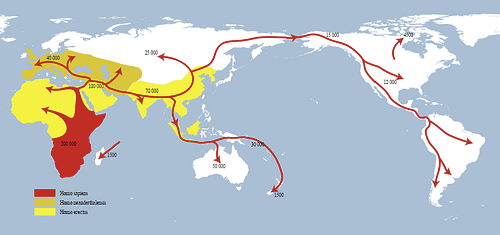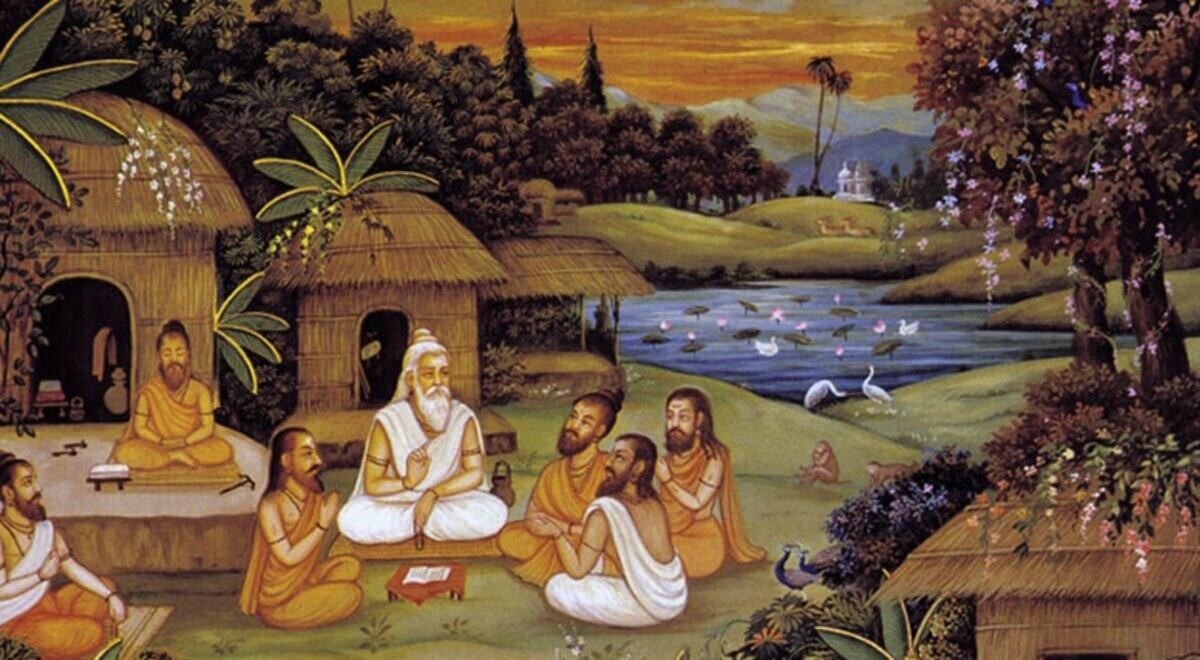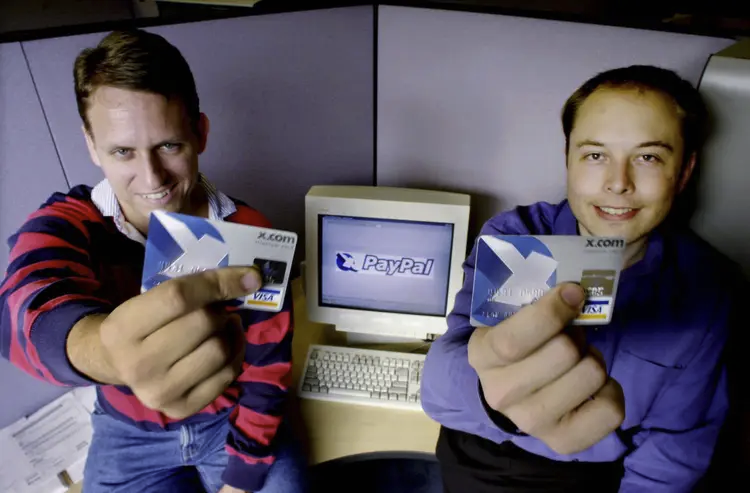
Let's talk politics.
But first, let's get back to the origins of life on earth.
Our best current hypothesis is that the first replicator was a string of aminoacids. It's called the RNA world hypothesis, and this video is amazing:
But first, let's get back to the origins of life on earth.
Our best current hypothesis is that the first replicator was a string of aminoacids. It's called the RNA world hypothesis, and this video is amazing:

Assuming that was the case, aminoacids fumbling into each other, somehow stumbling upon a mirroring structure, you can see how the environment was doing most the heavy lifting. Aminoacid density, water, temperature differentials, movement, all had to be perfectly balanced. 

Suddenly, an RNA string discovers a neat trick. It allows survival juuuuust a bit outside the tight environmental envelope all its family lives within. And that's huge, because as the original environment fills up, anyone veering outside has new, uncontested space to replicate. 

Long story short, a cell was formed, then a multicellular organism, then life got on dry land, then the air. 







And then a human appears. It may have taken 3.5b years since that RNA chain, but here we are. Our greatest strength is how much of our behavior is software versus hardware. Each time a tribe solved a problem and went farther, the more untapped resources they could access. 



Before you know it we have religions, and cities, and industrial revolutions and agricultural revolutions. 







To live is to grow. To exceed our envelope & go farther. That's the real Embedded Growth Obligation. It's not capitalism, or even @EricRWeinstein's DISC. It's simply life. Our destiny is as obvious as it is inevitable.
Life good. More life, more good.
Life good. More life, more good.
https://twitter.com/alexandrosM/status/1320112382127947777?s=20
If we accept that OCCUPY UNIVERSE is the rightful destiny of life, then all we can do is simply work to make it happen. And since the only way for it not to happen is for something to get in its way, perhaps we should eliminate anything that might stop it from happening.
No, I don't mean Bernie. He's old enough, we'll wait him out.
https://twitter.com/BernieSanders/status/1373699911783477253?s=20
I mean the kinds of things that might wipe us out. Some call them existential risks. I focus one step earlier, on the Single Points of Failure and Single Points of Control (SPOF/SPOC). An existential risk can only exist if the lever exists with which it can kill us.
Instead of preventing existential risk, we should be building a civilization that cannot be brought down by taking down any one thing about it. Complex systems are ones that survive removal of a part. ncbi.nlm.nih.gov/pmc/articles/P…
So what does a civilization free of SPOFs and SPOCs look like? One thing is for sure, it is very different from the one we have now.
https://twitter.com/alexandrosM/status/1417112711129800704?s=20
I don't know what the whole picture looks like, but I do believe I have some pieces here and there. So, first, let's talk solar power.
https://twitter.com/alexandrosM/status/1335933232949256194?s=20
Each community should be able to tend to at least some of its needs, and if they can get to full-blown self-replicator, they are effectively fully independent. Are self-replicators hard to build from basic materials? I really don't think so. Seriously.
https://twitter.com/alexandrosM/status/1366105216702062594?s=20
And these local communities can be interconnected with satellite internet.
https://twitter.com/MichaelVolle/status/1417498309309108224?s=20
It's important we get rid of undersea cables, as more obvious SPOFs and SPOCs have hardly been invented. thehindu.com/sci-tech/techn…
Once we are online, we'd need a perfectly distributed global community, enabling conversation on truly global scale, without censors and gatekeepers. Yours truly wrote a paper on this back in the day: arxiv.org/abs/0907.2485
Of course those ideas have matured over the last decade, and now the Blockchain, and Ethereum, Cardano and other avant-garde chains are breaking new ground on what can be done without SPOFs and SPOCs. There's just one thing though...
All the distributed computing in the world won't get you out of a hole when the owner of the keys is put in a damp room and explained the principles of rubber hose cryptography. 

The way online communities create pseudo-objective centralized objects various players compete for, in a way we've not come very far at all. This was my other pivotal paper (and much less cited than the other one): researchgate.net/publication/24…
And while it does pretty much re-invent the wheel of Goodhart's law, I still think the application to online communities and the problem of replacing the "administrator" with something that cannot be captured and put in a damp room is still valuable.
This is the final piece to the puzzle that must be resolved. And it just might be the hardest. Or it may turn out obvious. Some have called it #gameb but that's just a specification. A lot of prototyping and experimentation is needed still -
https://twitter.com/alexandrosM/status/1414766946311053323?s=20
In the meantime, the other SPOF is the rock we're sitting on. And if we don't want to be one of those single-planet species, we have got to do something about it.
https://twitter.com/teslaownersSV/status/1410374955624136709?s=20
Every time you hear someone say that we need to have fewer children, live within our means, in order to survive, remember that these people are proposing something that has never be done, and quite likely can never be done. Life does not stay static. It either grows or dies.
So if you ask me, I'd much rather aim for a trillion humans spread across the solar system as a modest intermediate goal before we can get off this star system. It's a good start.
As to how? The single greatest piece of advice I've heard so far comes from a familiar source. Meditate on these words. You know you've understood them when they've blown your mind for a couple of weeks in a row:
https://twitter.com/PPathole/status/1362993807264866304?s=20
I'm apparently an idiot who should check his terminology better before tweeting. But that would be self-limiting. Oh well, I'm sure I'll make a v2 of this thread one day 🖖
https://twitter.com/AphidPete/status/1418142869177634819?s=19
• • •
Missing some Tweet in this thread? You can try to
force a refresh













